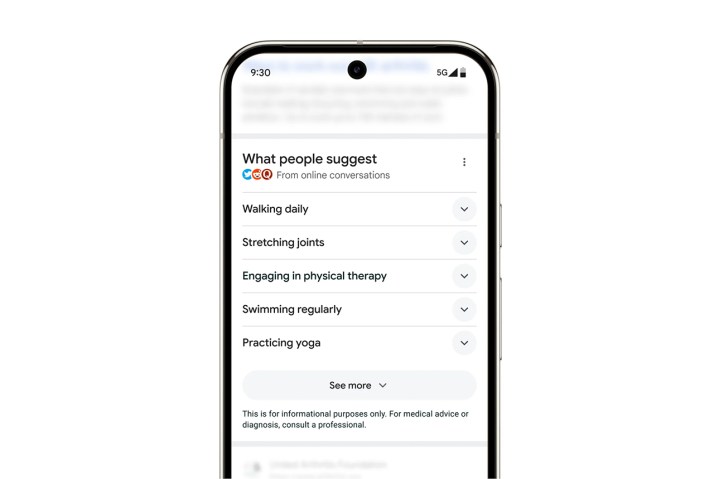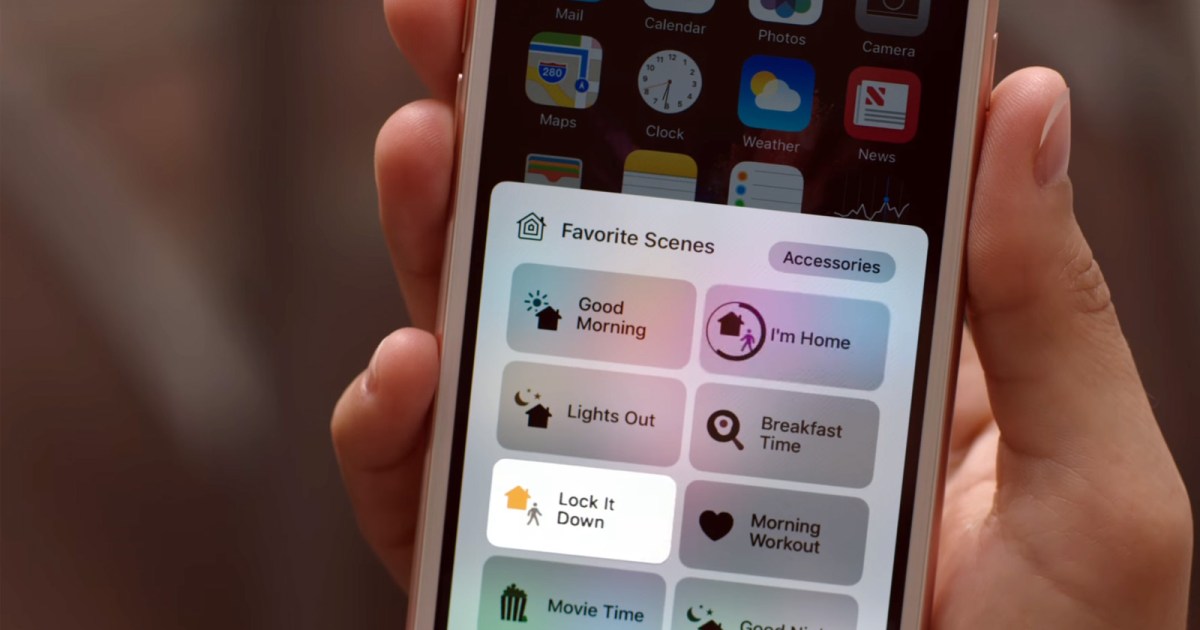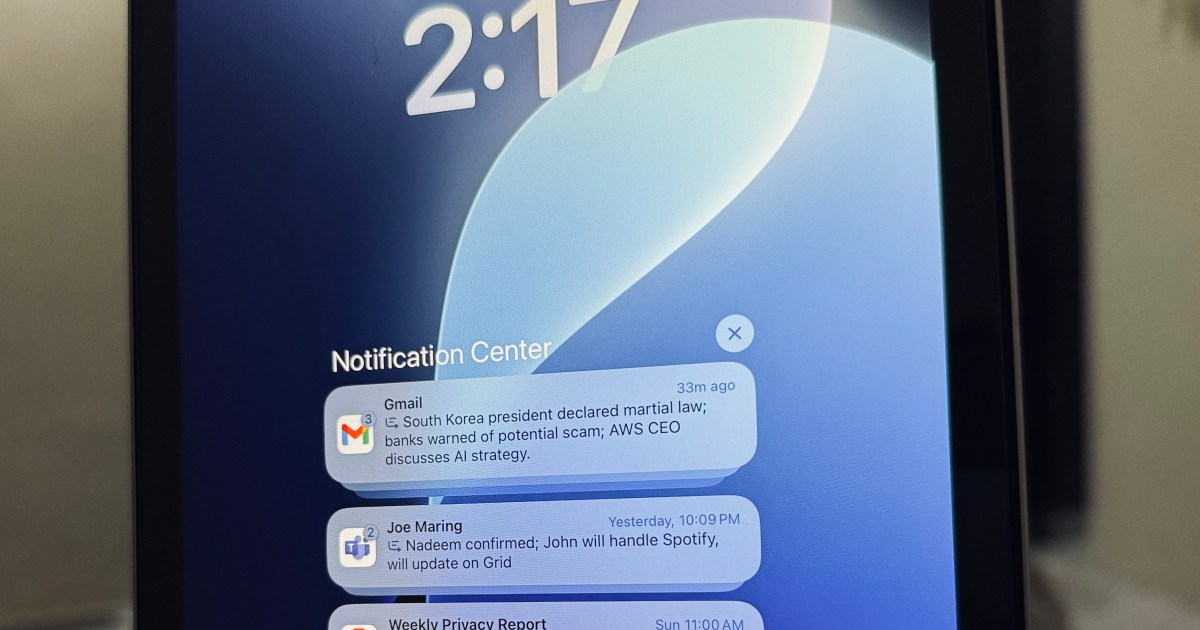Over the past year, Google has been integrating AI into its search results, providing AI-generated overviews instead of traditional link lists. This aims to deliver information quickly, saving users time from evaluating individual links. Now, Google is extending these AI overviews to encompass a wider range of health-related searches.
At its annual health event, The Check Up, Google announced enhancements to how its products deliver health information. The company is broadening AI overviews in search to thousands of additional health topics, moving beyond basic ailments like the flu. This expansion also includes language support beyond English, encompassing Spanish, Portuguese, and Japanese for mobile searches.
 Google AI overviews for health related searches on mobile.
Google AI overviews for health related searches on mobile.
Furthermore, Google introduced a “What People Suggest” feature, compiling personal experiences from forums and public platforms like Quora and Reddit for medical searches. Currently, this feature is limited to U.S.-based mobile users.
It’s crucial to remember that Google’s AI overviews, like all generative AI, can produce inaccuracies (hallucinations) and shouldn’t be your only source of medical information.
AI’s Role in Medical Research and Treatment
Beyond search improvements, Google launched the Medical Records API within its Health Connect platform. This allows medical records in a specific format to be shared across various health and fitness apps on Android devices.
While AI search results can’t replace professional medical advice, Google is expanding access to lightweight AI models from its Gemma family. These models are designed to expedite drug discovery by providing researchers with existing knowledge about the effects of specific molecules.
Google is also piloting an AI tool called Capricorn, designed to assist doctors, particularly pediatric oncologists, in personalizing treatments for young cancer patients. This pilot program is currently underway at a hospital in the Netherlands.
Google’s Continued Focus on Healthcare AI
Google’s commitment to integrating AI into healthcare is evident in these new initiatives. From enhancing search results to providing tools for medical professionals, AI has the potential to transform how we access and utilize healthcare information. However, it’s important to maintain a critical perspective and consult with healthcare professionals for personalized medical guidance.









